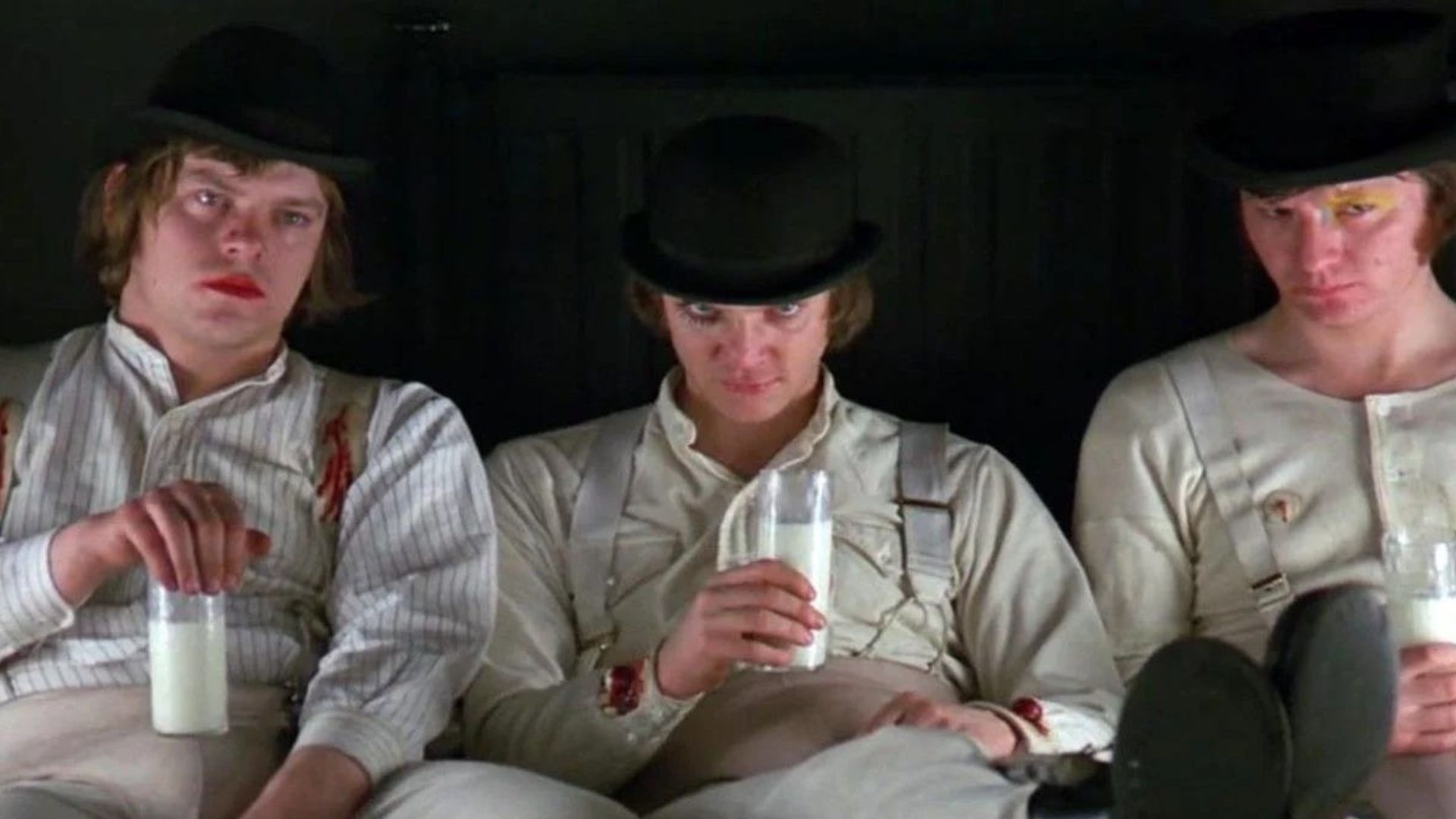A Clockwork Orange (1971)
May 25, 2025

The one quality I appreciate most in a movie is creativity—and this movie has tons of it. The set and costume design alone are amazing, especially in the first half of the film, which I personally think is the best part. The second act slows down a bit, but it ends on a high note with the third. Some other noteworthy stuff:
- Half the time, I had no idea what the Droogs were saying.
- I loved the sped-up sex scene set to Beethoven.
- Also, this movie has a lot of boobies. I like.
- The music in general fits really well and has a timeless, iconic quality.
The central question the film poses is:
Can you be a good person if the only reason you don’t do wrong is because of punishment—or because you physically can’t?
The movie clearly leans toward saying that without choice, without the freedom to do wrong, being “good” becomes meaningless. Only through the contrast of being able to do evil and choosing not to, can goodness be considered praiseworthy or meaningful.
There’s an interesting parallel here to the movie No Country for Old Men, which asks:
Is virtue only worthwhile if it’s rewarded—or is its worth found in its very lack of reward?
Both films question the meaning of morality, whether vice or virtue, when it’s stripped of its existential context, i.e., the ability to choose freely.
- In No Country for Old Men, this stripping happens through cosmic indifference: bad things happen to good people, and good things happen to bad people—seemingly at random. Virtue isn’t necessarily rewarded, and evil isn’t reliably punished. Yet people must still choose how to act.
- In A Clockwork Orange, the stripping happens through deterministic control: can we call someone the agent of their actions if they have no real choice? Or are they more like automatons? Vice is eliminated not by moral growth, but by stripping the agent of choice through psychological conditioning.
Even though the two movies come at the question from opposite angles, they ultimately arrive at the same conclusion: Virtue and vice, goodness and badness, only make sense in a context where both reward and punishment are uncertain, and where the agent of action has the freedom to choose otherwise.
Good movie. 7/10.
